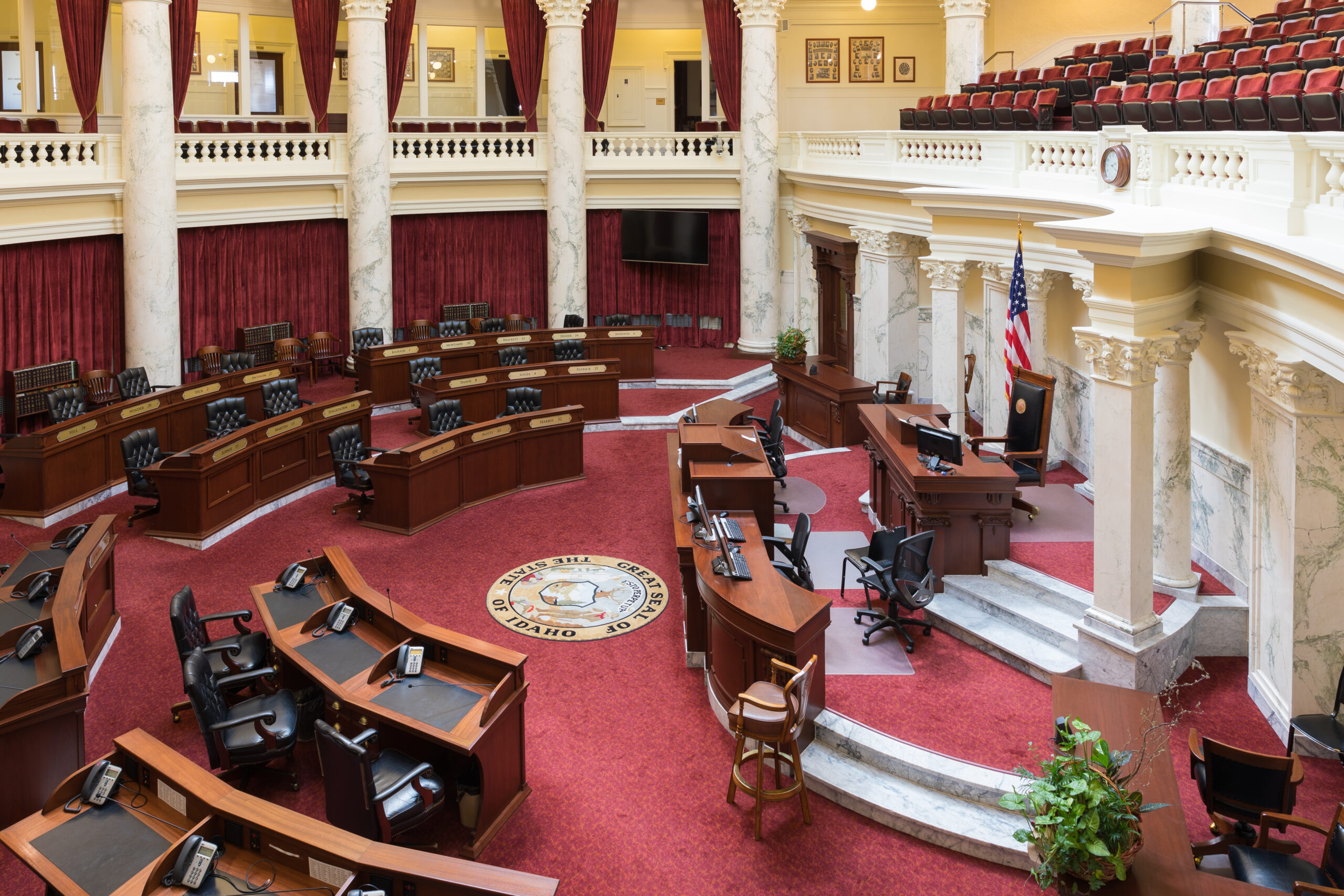A proposed constitutional amendment that would make it much harder for the people of Idaho to directly propose laws themselves through the initiative process was approved yesterday in the Republican-controlled Idaho State Senate, showing that Republican legislators remain obsessed with assaulting direct democracy.
“On Monday, the Idaho Senate voted 27–8 to pass Senate Joint Resolution 101, which would require 6% of voters in all thirty-five Idaho legislative districts to sign a petition for an initiative or referendum to qualify for election. The current threshold is six percent of voters in eighteen legislative districts,” the Idaho Capital Sun’s Clark Corbin reported in a story on the scheme.
Amending the Constitution is a different process than changing state law. New laws require simple majorities and a gubernatorial signature (or veto override). Constitutional amendments need a two-thirds vote of each chamber to begin with plus an affirmative vote of the people. That means voters will get the final say over this proposal if it advances through the House of Representatives.
The goal of SJR 101 is to stymie any future use of the people’s initiative power to let voters consider policies that go unconsidered in the state Legislature, which has been dominated by militant right wing Republicans for years.
Medicaid expansion is a good example: Right wing legislators repeatedly refused to authorize it, so an initiative was organized and qualified to allow voters to decide. The people voted for it, which left Republican legislators seething.
Doing away with the initiative and referendum altogether would be unpopular, so Republican legislators are instead focusing on trying to make it really difficult to qualify anything. (As far as they’re concerned, that is the next best thing.)
The opening paragraph of their statement of intent tries to frame their scheme as a matter of fairness and inclusivity, which is just laughable:
The Joint Resolution will more fairly distribute voter involvement and inclusivity for initiatives and referenda by giving every legislative district in the state a voice. The Joint Resolution will ensure that the wishes of all thirty-five legislative districts are considered versus only eighteen legislative districts as is currently allowable.
The real reason for the amendment pops up in the second paragraph:
The Joint Resolution will eliminate the current practice of “venue shopping” by well-funded activist organizations. For example, under the current system, it is possible to acquire more than one half of the total number of signatures required to place a question on the ballot from a single legislative district.
Translation: we do not want organizations that aren’t aligned with us, like Reclaim Idaho, to be able to go to a populous place like Boise and collect signatures to put an idea on the ballot that is at odds with our extreme agenda for Idaho.
The phrase “venue shopping” is completely inapplicable here. The people of Idaho are not the judiciary, they are the qualified electors of the state. Their votes — and signatures — should carry the same weight regardless of legislative district or zip code. There is nothing unfair about a significant percentage of the signatures for a proposed ballot measure coming from one locale within the state.
In the Legislature, any senator or representative may propose a bill, resolution, or memorial. There is no cosponsor distribution requirement. In other words, legislative items don’t need cosponsors from all thirty-five legislative districts or even eighteen of them in order to be considered in either the House or Senate.
The same should be true for ballot initiatives.
Geographic signature distribution requirements are incompatible with the principles of direct democracy. They fundamentally change how qualification works, giving some voters more power than others. Even the eighteen district distribution requirement Idaho currently has is bad and ought to be abolished.
Washington has no such geographic distribution signature requirements. To qualify an initiative, sponsors must submit a number of signatures equivalent to eight percent of those who voted in the last election for governor. The signatures can be from voters residing anywhere in the state, which is appropriate.
Democratic Senator James Ruchti of Pocatello remarked during the debate that Republicans are simply trying to stack the deck against future initiatives or referenda that they do not like with onerous signature requirements.
“When the people use their right, their direct legislative rights, which the Constitution allows them, the Legislature doesn’t like it and responds by saying, ‘Well, let’s make it harder to use,’” Ruchti said.
Exactly.
If SJR 101 can be defeated in the House of Representatives, it will not advance. If it can’t be defeated there, it could still be nixed by Idaho voters. The measure would appear on the November 2024 ballot if it gets out of the Legislature, rather than this year’s ballot, allowing for plenty of time for an opposition campaign to be organized. NPI stands ready to help form an opposition campaign in the unfortunate event that SJR 101 makes it to the statewide ballot.

